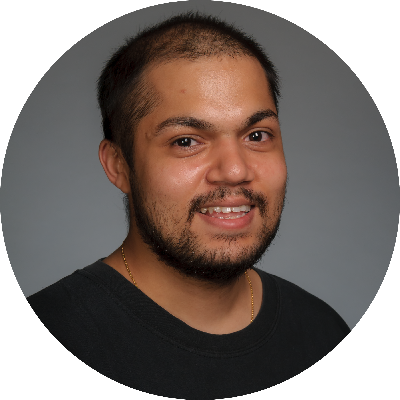
Clayton Santiago
The use of gene therapy has the potential to treat a variety of diseases, including those affecting the retina. However, it’s essential to have precise control over the expression of the therapeutic gene to avoid any harmful side effects. One possible approach is to use minimal promoters and enhancers to regulate gene expression through cell-specific transcription factors. However, this strategy has drawbacks, such as unpredictable and leaky expression patterns across cell types and possible suppression during disease. We developed a novel approach called splicing-linked expression design (SLED) to address these limitations in gene therapy. SLED involves linking cell-specific splicing events with robust constitutive promoters to control gene expression. We successfully demonstrated the potential of SLED for gene therapy by creating a SLED vector that can effectively rescue photoreceptors in an animal model with retinal degeneration. We believe this approach could pave the way for more effective and safer gene therapy strategies to treat a variety of diseases.
Questions & Answers
Why did you choose Johns Hopkins for your work?
The research environment at Johns Hopkins is truly exceptional and unparalleled. The institution provides cutting-edge facilities and abundant resources — a clear indication of their unwavering commitment to supporting researchers. Hopkins also fosters a culture of collaboration, attracting some of the most gifted scientists globally. Among them is Seth Blackshaw, a pioneering researcher in the field of retinal development, whom I have known since my graduate days. Throughout my time knowing him, I have been struck by his exceptional research skills and innovative use of technology to address scientific questions. When I was given the opportunity to join his lab, I was thrilled to embark on research aimed at unraveling the molecular mechanisms that control retinal development and disease.
What does receiving this award mean to you personally and professionally? Do you have any connection with the particular award you received?
With his distinguished career as a researcher, clinician and teacher, Harvey was a true pioneer in his field. As a postdoctoral fellow, I am both honored and humbled to be selected for the A. McGehee Harvey Award from among so many talented peers. This recognition is a wonderful acknowledgement of my hard work and serves as motivation to continue striving for excellence in my research and teaching endeavors.
What contributed to your project’s success?
Seth has been an incredibly inspiring and supportive mentor for my research projects. I cannot overstate how much I benefited from his wealth of experience and expertise. He provided me with the freedom to explore scientific questions that interest me, which has been invaluable for my growth as a researcher. I am also incredibly grateful for members of the lab, who have been a great source of support, offering constructive feedback and encouragement. I have worked with some fantastic undergraduate and post-baccalaureate students, such as David Espinoza, Megan Gimmen and Taqdees Gohar, who have helped advance the projects I’ve worked on. Finally, collaboration has been a critical component of my success as a scientist. I have had the privilege of working with some exceptional researchers, such as Jonathan Ling, Mandeep Singh, Robert Johnston and Edward Levine, among many others. Their contributions have been instrumental in advancing my research and furthering my understanding of the field.
What thoughts do you have about Young Investigators’ Day itself, as a celebration of the roles student and fellows play in research at Johns Hopkins?
I think Young Investigators’ Day is a fantastic opportunity for the Hopkins community to celebrate and recognize students and fellows who play critical roles in cutting-edge research that further advances the field of medicine. These distinctions will inspire young scientists to continue to push boundaries and make groundbreaking discoveries.
What has been your best/most memorable experience while at Johns Hopkins?
I am very lucky to have many memorable experiences while at Hopkins, including obtaining incredible scientific data and meeting some fantastic people that shaped my career. Having said that, my most significant experience was the birth of my son, which was truly life changing.
What are your plans over the next year or so?
In the near future, my goal is to complete several ongoing projects in the lab and prepare them for publication. Afterward, I plan to seek out faculty positions with the ultimate aim of establishing my own research program focused on investigating the mechanisms that regulate late-stage retinal fibrosis and developing innovative therapies for the treatment of retinal disorders.
Tell me something interesting about yourself that makes you unique. Do you have any special hobbies, interests or life experiences?
I love collegiate athletics, and I am a big fan of the Florida Gators. During my time as a graduate student, I went to every possible sporting event on campus. It is an incredible experience to be in a college stadium filled to capacity with thousands of other fans cheering on your team.